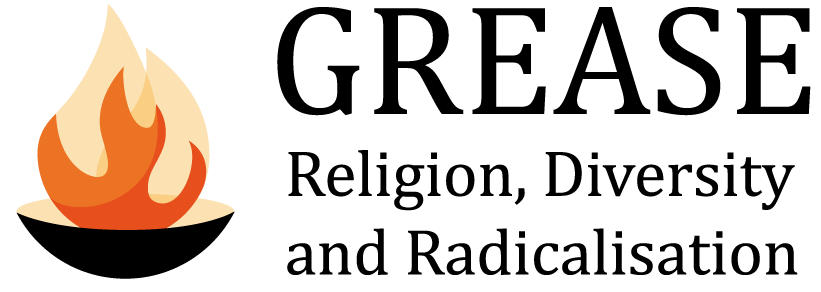October 2020
| – Resilience Handbook published – Radicalisation and Resilience Case Studies – State-Religion Governance Indicators – Indicators Workshop |
| Online courses extended | Global Extremes blog growth | GREASE Films on YouTube | Virtual Project Meeting | Coming soon |

The GREASE consortium has been strikingly productive these past six months, even if the pandemic has limited some of our activities. We published a practical Handbook on Resilience, an Indicators Toolkit, 24 Country Assessments and a dozen Case Studies. Utilizing digital technologies, we hosted a multi-project online workshop involving stakeholders from around the world. We assembled our consortium partners virtually across vastly different time zones for a two-day project meeting (with excellent attendance). We expanded access to our online courses (MOOCs), engaging hundreds of learners over a period of several weeks. We increased the visibility of our documentary films, giving them prominence on YouTube. And we boosted output on our collaborative Global Extremes blog, reaching tens of thousands of additional readers.
Indeed, much to tell in this fifth edition of our Newsletter!
Resilience Handbook Published
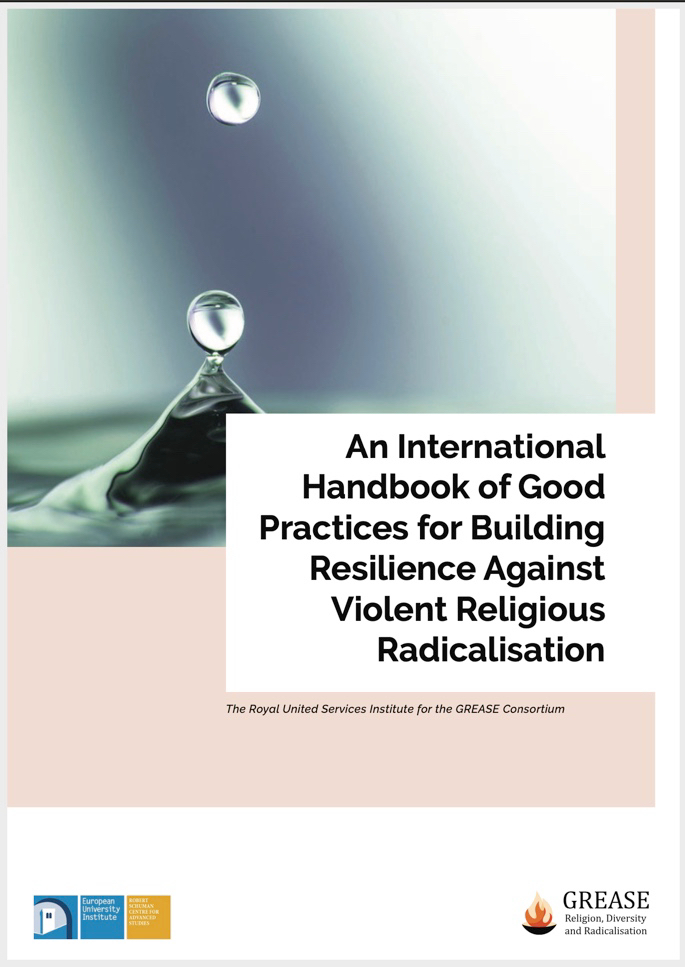
We are delighted to announce the publication of An International Handbook ofGood Practices for Building Resilience Against Violent Religious Radicalisation. Incorporating findings from a dozen Case Studies carried out by our regional partners, this booklet offers practical guidance on how to strengthen community resilience.
At the heart of the Handbook are nine Good Practices which are explained in straight-forward terms and distilled into a succinct set of recommendations. Nearly all of our good practices are illustrated with real-life examples from different countries. While acknowledging that “no panacea to violent religiously-inspired radicalisation” exists, the Handbook nonetheless provides valuable orientation for those working on the front lines. It highlights successful programmes in countries ranging from France and Egypt to Malaysia and Australia.
Radicalisation & Resilience Case Studies

Laying the foundation for our Handbook of Good Practices (previous news item), our Case Studies assess efforts by 12 countries to counter religious radicalisation and violence and to build resilience.
Each of the countries examined has experienced religiously inspired or attributed violent radicalisation among their native, migrant or post-migrant Muslim populations. The reports, which vary in length between 25 and 50 pages, were prepared by our regional partners. Each follows a similar structure, starting with background on religious diversity and governance and going on to cover state and non-state approaches to countering violent extremism.
Countries covered in our Case Studies series: Australia, Belgium, Bosnia and Herzegovina, Egypt, France, Germany, Indonesia, Malaysia, Morocco, Russia, Tunisia and the United Kingdom.
State-Religion Governance Indicators & Toolkit
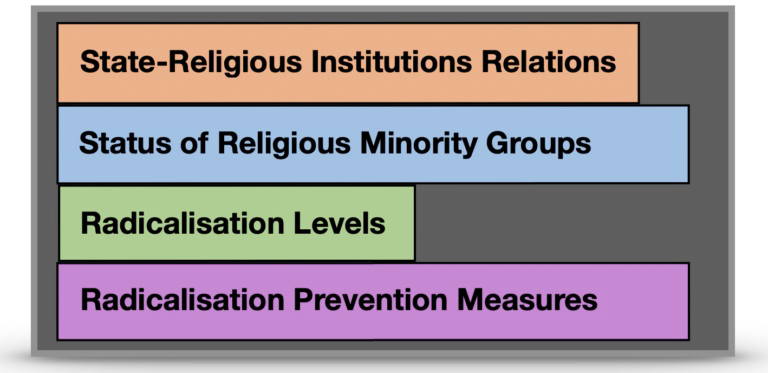
In late June the GREASE project achieved an important milestone with the release of socio-political indicators for assessing how religious diversity is governed in different parts of the world. These indicators have been integrated into a Toolkit which is being used to produce detailed Country Assessments.
The GREASE Indicators Toolkit is a practical instrument for assessing state-religion relations, governance of religious diversity and violent radicalisation. It is designed for use by experts in producing country-level assessments. The aim is to enable policymakers, scholars and civil society to monitor key developments and trends.
Our indicators relate to four key vectors: degree of political secularism; governance of religious diversity; level of (violent) religious radicalisation; and efforts to address such radicalisation. Using the GREASE Indicators Toolkit, we have assessed 23 countries representing four macro-regions within Europe and four outside the EU. Our toolkit has also been used by scholars at Ryerson University in Toronto to produce a country assessment for Canada. The Indicators Toolkit and all Country Assessments are available here.
The Virtual Workshop
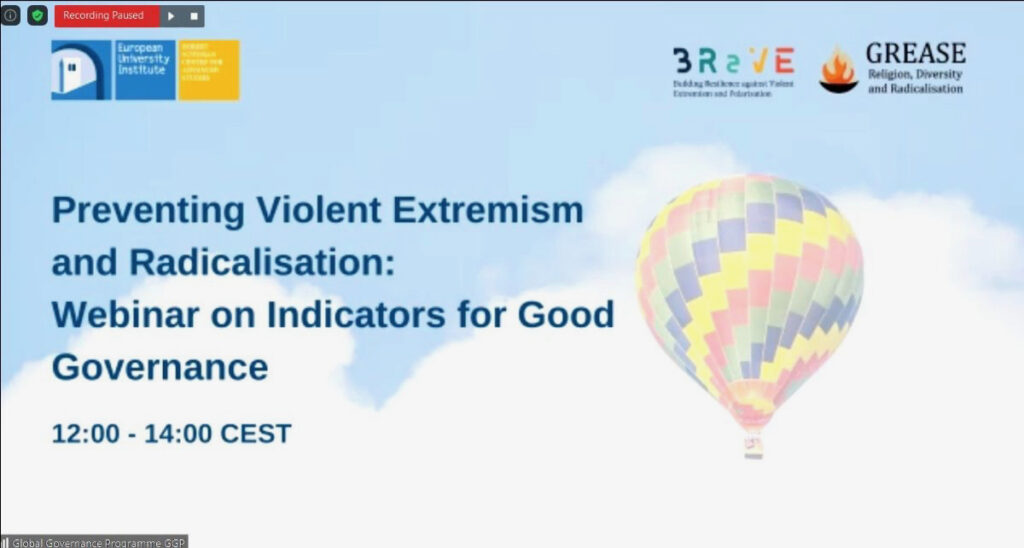
Though the pandemic currently prevents us from meeting stakeholders face-to-face “on the ground”, we are utilizing digital technologies to bridge the gap.
Our first major experiment with this was a multi-project workshop that was originally scheduled to be held in Brussels in April. When it became clear that would not be possible, we first postponed the event until September and eventually decided to move it online. Though technically and organizationally challenging, the event proved quite successful.
Over a hundred participants logged in on September 23rd for “Preventing Violent Extremism and Radicalisation: Indicators for Good Governance”. The workshop presented sets of indicators from three separate but related EU-funded projects: GREASE, BRaVE and BRIDGE. Garnering the attention of many valuable stakeholders, the event allowed all three projects to collect essential feedback. A recording of the workshop is available here.
Online Courses Extended
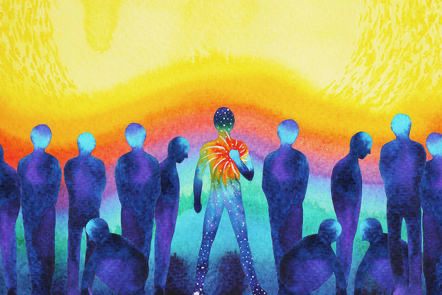
Demand for our online courses remains strong, reflecting interest from a broad range of learners around the globe. To meet this demand, GREASE has decided to expand the number of multi-week time slots during which the courses can be accessed free of charge on the Future Learn platform.
“Religion, Radicalisation, Resilience” will begin its next cycle on November 16. “Governing Religion: Global Challenges and Comparative Approaches” has just completed another run and will be offered again next March.
Global Extremes Blog Growing
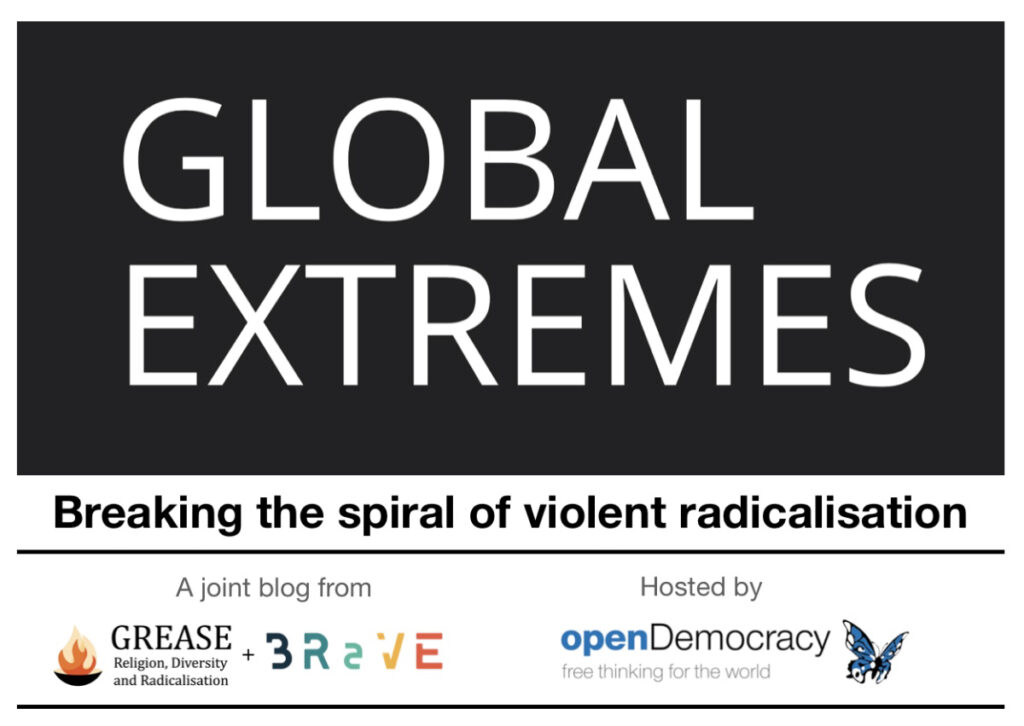
Global Extremes – the blog we launched together with the BRaVE project one year ago – has grown impressively in terms of both size and popularity. Hosted on the Open Democracy platform, Global Extremes now includes more than 20 full-length articles. The blog examines the dynamics of religiously inspired violent radicalisation and far-right extremism and options for building more resilient societies.
Articles penned by GREASE partners routinely register thousands of page views, with one piece – exploring the difference between a niqab and a face mask – gaining well over 20,000.
Our current series on the theme of “Violent Radicalisation” features contributions from several GREASE consortium members. While one explains how rhetorical tropes are dominating public discourse surrounding the murder of Samuel Paty in France, for example, another looks at how the term “radical” is used for political purposes by Russian authorities.
GREASE Films Now on YouTube
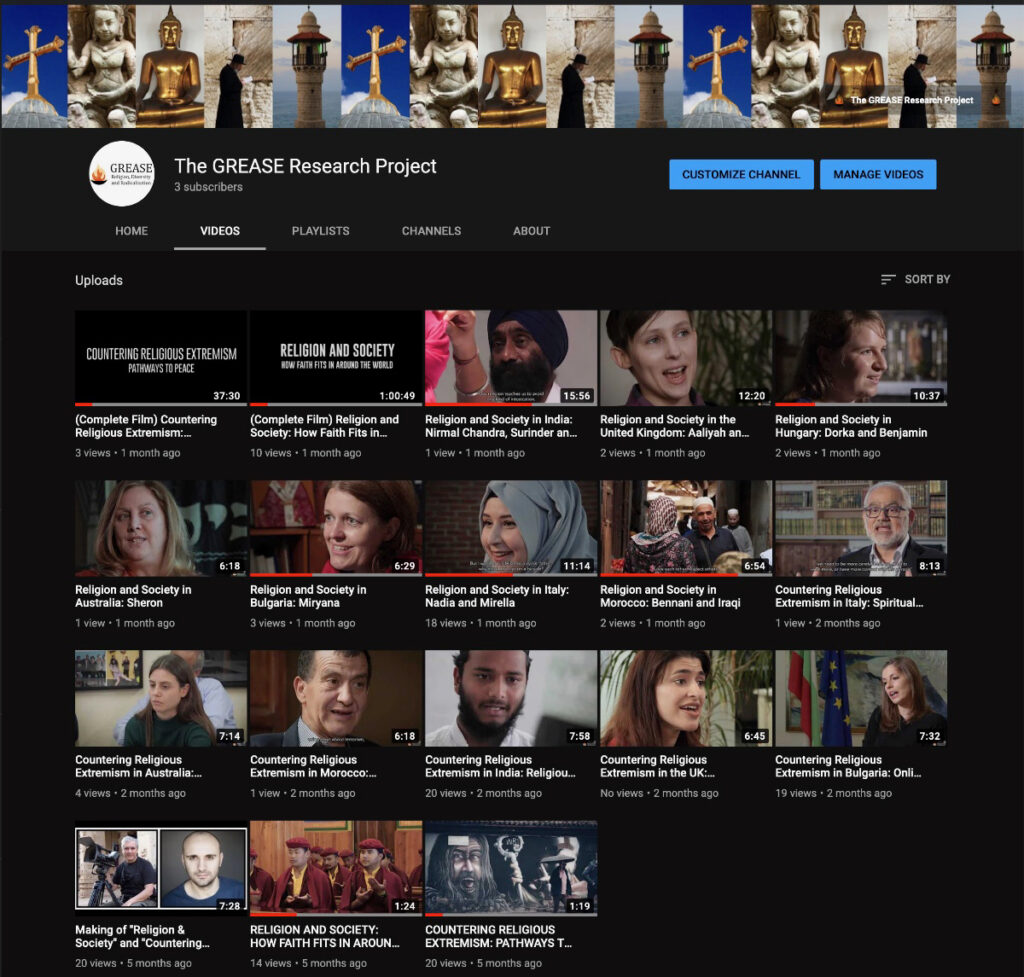
We are happy to report that our documentary films – Religion and Society and Countering Religious Extremism – are gaining added visibility on the popular streaming platform YouTube.
Exploring governance of religious diversity and counter-radicalisation, the films have been featured on their own dedicated website for several months. Now they can also be easily accessed on GREASE’s own YouTube channel. In both cases viewers have the option of watching the films in full length or exploring the country “chapters” individually.
Project Meeting Goes ZOOM
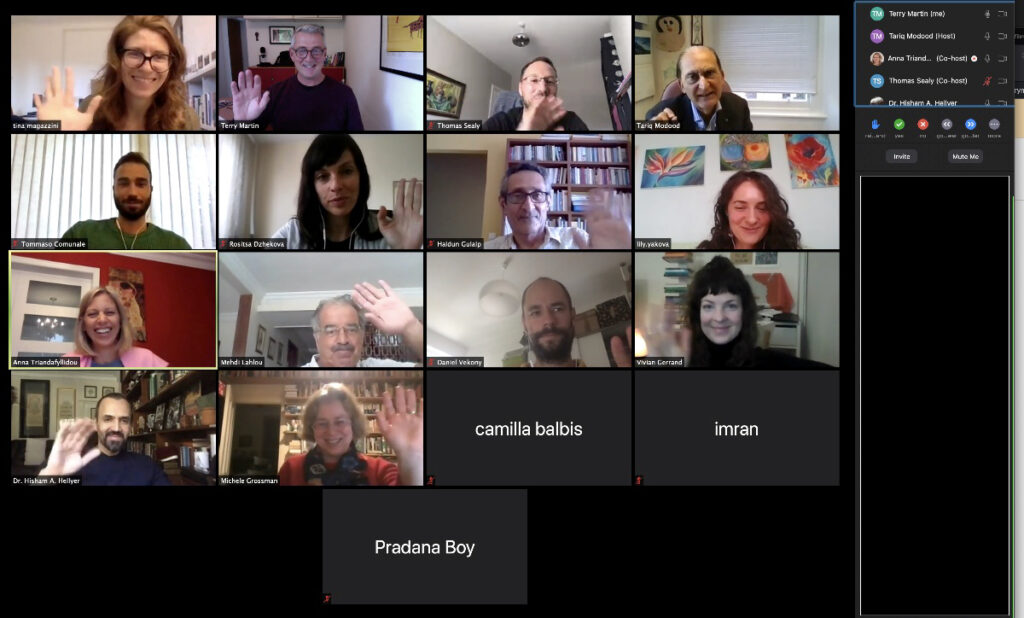
On September 24th and 25th, the far-flung partners of the GREASE consortium assembled online to take stock of our progress to date and to discuss our way forward in light of the global health emergency. Partners dialed in from all over the world – from Australia and South Asia to North Africa, Europe and North America.
While we breathed a collective sigh of relief at having finished most of our field work before the pandemic hit, we acknowledged collective disappointment at not being able to proceed with plans to host regional workshops (and GREASE film screenings) in Europe, North Africa and South Asia. We are now considering alternative plans, including an extension of the project to accommodate the workshops and our final conference at a time when safe travel and in-person meetings are possible again.
Coming soon …
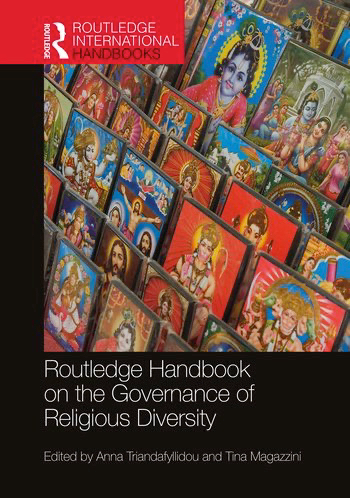
The Routledge Handbook on the Governance of Religious Diversity
Don’t miss the publication of this significant book capturing key insights from the GREASE research project.
Interested in what we’re doing? Subscribe to our newsletter HERE
